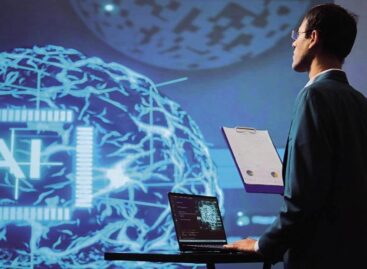Hungary trusts AI
As artificial intelligence (AI) increasingly impacts everyday life around the world, the vast majority of Hungarians already know the basics of the technology and trust that companies will use data responsibly, according to the latest international Ipsos AI Monitor 2025 research. According to the survey, people do not trust that the state can responsibly regulate artificial intelligence. Hungarian respondents are among the most pessimistic on this issue, and they are not optimistic about the impact of AI on the economy.
 Similar to last year’s survey, three-quarters of Hungarian respondents this year said they understand what artificial intelligence is – this is higher than the average of the 30 countries included in the survey (67%), and better than even Poland, which was also included in the research from our region. Similar to 2024, this year too, two-fifths of the Hungarian population said they knew which services use AI, but the difference compared to last year is that the proportion of those who could not say which ones use AI increased from 41% to 45%. This puts us at the bottom of the list with countries such as the Netherlands, Great Britain or Germany.
Similar to last year’s survey, three-quarters of Hungarian respondents this year said they understand what artificial intelligence is – this is higher than the average of the 30 countries included in the survey (67%), and better than even Poland, which was also included in the research from our region. Similar to 2024, this year too, two-fifths of the Hungarian population said they knew which services use AI, but the difference compared to last year is that the proportion of those who could not say which ones use AI increased from 41% to 45%. This puts us at the bottom of the list with countries such as the Netherlands, Great Britain or Germany.
We see more advantages than disadvantages
Two-thirds of Hungarians (64%) believe that artificial intelligence brings more advantages than disadvantages – this is also a rate above the European average. Half of the population is excited about the development of AI, while 53% also view the spread of the technology with some concerns, which indicates a balanced attitude. Hungarians think similarly to the average in this regard (55% are worried about AI), which is a much higher rate than in last year’s survey or than in the case of Poles (40%), but on a par with Colombia, Sweden and Malaysia. 44 percent of Hungarians surveyed are excited, meaning they have positive feelings about the rise of artificial intelligence, which is noticeably lower than the global average and a slight decrease compared to last year.
According to Zsolt Vadócz, Head of Digitalization at K&H, this optimistic attitude also reflects the fact that customers are increasingly looking for the benefits of AI in financial services. “Artificial intelligence makes banking not only easier, but also faster and more personalized – at K&H we already use digital solutions that can guide you through a loan application in minutes or help you manage your finances, including parking, buying tickets, and organizing your trips – in other words, we are going beyond traditional banking. K&H’s vision is a digital ecosystem where Kate, the digital financial assistant, not only handles transactions, but also provides solutions to complex life situations.”
Related news
Hungarian world first: AI calculator calculates how much a company will lose during the flu season and how much can be saved by using preventive technologies
🎧 Hallgasd a cikket: Lejátszás Szünet Folytatás Leállítás Nyelv: Auto…
Read more >Tuned to efficiency
🎧 Hallgasd a cikket: Lejátszás Szünet Folytatás Leállítás Nyelv: Auto…
Read more >K&H: the best digital bank, easy and fast
🎧 Hallgasd a cikket: Lejátszás Szünet Folytatás Leállítás Nyelv: Auto…
Read more >Related news
Festival buzz at the 60th anniversary EuroShop trade fair
🎧 Hallgasd a cikket: Lejátszás Szünet Folytatás Leállítás Nyelv: Auto…
Read more >Historic price reduction at ALDI
🎧 Hallgasd a cikket: Lejátszás Szünet Folytatás Leállítás Nyelv: Auto…
Read more >A stable compass in the Hungarian FMCG sector for 20 years
🎧 Hallgasd a cikket: Lejátszás Szünet Folytatás Leállítás Nyelv: Auto…
Read more >







